I spent most of my time talking about hypothyroidism which is the condition that results in LOW thyroid function.
But what about those people who struggle with the exact opposite condition known as hyperthyroidism?
Well, today is for you guys. If you are someone who has been told that your thyroid is OVERACTIVE or that you are HYPER then this information is for you!
But this information isn’t just for those people who have hyperthyroidism.
It actually applies to ALL thyroid patients.
Here’s why:
If you have a thyroid condition then you will experience shifts in thyroid function throughout your life.
A lot of people think that if they have hyperthyroidism they will be in this state for the rest of their life.
This couldn’t be farther from the truth!
All of the treatments used to treat hyperthyroidism work by SLOWING down your thyroid!
And all of the treatments used to treat hypothyroidism work by INCREASING your thyroid!
Hopefully, you can imagine a scenario in which this process isn’t perfect.
What I mean is that your doctor will never be as good as your own thyroid hormone in balancing your thyroid levels.
It’s much more common for your doctor to give you either too much or not enough and to take some time to dial in your dose of whatever medication you are taking.
And during that time, you won’t feel like yourself.
The truth is that most thyroid patients fluctuate between states of hyperthyroidism and hypothyroidism throughout their life which is why this information is important.
You as a thyroid patient must understand the spectrum of thyroid symptoms that you may experience throughout your life so you can tell, rapidly, what is going on with your thyroid.
With that in mind, let’s jump in…
DOWNLOAD FREE RESOURCES
Foods to Avoid if you Have Thyroid Problems:
I’ve found that these 10 foods cause the most problems for thyroid patients. Learn which foods you should avoid if you have thyroid disease of any type.
The Complete List of Thyroid Lab tests:
The list includes optimal ranges, normal ranges, and the complete list of tests you need to diagnose and manage thyroid disease correctly!
#1. Weight loss
One of the first symptoms that thyroid patients experience as their thyroid ramps up is weight loss.
This may sound good but it isn’t!
While you may drop some weight on the scale, this weight comes at the cost of muscle mass and even bone loss.
Yes, it is true that you will be losing some fat mass but fat loss that is accompanied by bone loss and muscle loss is less than ideal.
In addition, the weight loss that you may experience will be associated with other symptoms that will ruin whatever brief joy you may experience when you see the scale drop.
The exact opposite effect occurs (1) when your thyroid is low.
Low thyroid results in weight gain and high thyroid results in weight loss.
Often this change in your weight occurs without changing your diet and without altering how much you exercise.
Because the thyroid hormone is so important in regulating your metabolism, this powerful effect trumps pretty much anything else you are doing.
#2. Hair loss
As your thyroid revs up you will start to experience hair loss.
Both low thyroid and high thyroid can result in hair loss but each one is a little bit different.
The hair loss in hyperthyroidism results in fine, brittle hair which then cracks and breaks and then falls out.

The hair loss that occurs in low thyroid tends to come out in clumps and causes thinning of your hair.
It can sometimes be confusing trying to figure out what type of hair loss you have but if you focus on hair quality and texture you should be able to figure it out.
In hyperthyroidism, the hair quality and texture change significantly.
In hypothyroidism, the hair just tends to fall out in clumps.
#3. Rapid menstrual cycle
The average cycle is somewhere around 28 days.
As your thyroid increases, your cycle time will reduce (2).
So instead of having a cycle every 28 days, you may start to cycle every 21 days or 20 days.
I’ve seen some women cycle as fast as every 10-12 days!
The higher your thyroid goes the more rapid this cycle occurs.
The best thing you can do is keep an eye on your cycle to see if you are noticing a trend toward more rapid cycling.
For instance, if having a 30-day cycle is normal for you then you may start to see your cycle popping up 1-2 days earlier each and every month.
The exact opposite is true for those with low thyroid.
The menstrual cycle length in those with low thyroid is PROLONGED and may occur every 40-45 days (or even longer depending on how low your thyroid is).
And, by the way, this rapid cycling DOES impact fertility which is why women with low thyroid or high thyroid have a very difficult time getting pregnant.
In the case of hyperthyroidism, rapid cycling does not allow for ovulation to occur (3) and you have what is called anovulatory cycles.
Even though it appears you are “cycling”, the cycles you do get aren’t associated with ovulation (4) which means it’s impossible to get pregnant.
Not every cycle is anovulatory but it does increase the rate of these cycles.
If you are trying to get pregnant then fixing your thyroid should be your top priority!
#4. Anxiety and/or Panic Attacks
Increased levels of thyroid hormone also have an impact on your mood.
Most people with hyperthyroidism experience some degree of anxiety (5).
This anxiety can increase all the way up to panic attacks, depending on the person.
Patients with high thyroid often describe a “nervous energy” or “jittery” sensation that just doesn’t feel right.
If severe, these sensations can trigger panic attacks as well.
The exact opposite side effect is seen in low thyroid.
Patients with low thyroid tend to experience more depression than they do anxiety.
#5. Rapid heart rate
Remember:
Your thyroid stimulates pretty much anything that it touches.
So guess what happens if you have too much stimulation of your heart?
You guessed it. It beats faster.
In the medical world, this condition is known as tachycardia which is just a fancy word to describe a rapid heart rate.
You are considered to be tachycardic (6) if your resting heart rate is over 100 beats per minute.
And the word resting is key here.
If your heart rate is 105 and you just got back from a jog then that’s not an issue.
But if you just woke up from a good night’s sleep and your heart rate is 105 while resting there, you have an issue.
Fortunately, your heart rate can give you valuable information about your thyroid.
Unlike other areas of your body, your heart responds differently to thyroid hormone because it is more sensitive.
This has to do with how thyroid hormone impacts heart cells which is different from how it interacts with other areas of the body.
As a thyroid patient, you can use this to your advantage.
By keeping a close eye on your heart rate you can determine if whatever you are trying to do to your thyroid is working or not.
In the case of hyperthyroidism, you should see a decline in your resting heart rate quickly if you are on the right anti-thyroid medication or dose.
On the flip side, you can also use this information if you are hypothyroid and if you are taking thyroid medication.
In the case of low thyroid, the more thyroid medication you take the higher your heart rate will go.
In the case of high thyroid, the more anti-thyroid medication you take the lower your heart rate will go.
#6. Heart palpitations
We just spent some time talking about how hyperthyroidism can impact your heart rate.
But what about the FORCE of contraction?
Well, high thyroid levels also impact the force of contraction.
The force of contraction of your heart is how hard the heart is squeezing when it beats.
The rate at which your heart beats just refers to the speed, which is different from the force.
Thyroid hormone causes your heart to beat STRONGER which causes more blood to be pumped out with each beat.
Most people aren’t able to tell how strongly their heart is beating but some people can.
And the people who can feel it often feel that force of contraction as a heart palpitation.
Heart palpitations are often associated with a rapid heart rate but they don’t have to be (7).
In fact, most people who have heart palpitations get the sensation that their heart is “beating out of their chest” but when you check their heart rate it’s often very normal.
In the case of high thyroid, though, they do tend to go together more often than not.
People who experience palpitations often go straight to the doctor because the sensation is unpleasant.
Fortunately, though, a heart palpitation is usually not dangerous by itself but it may be an early indication that something is off so it can be helpful.
#7. Tremors
One of the first signs that people experience as their thyroid increases is a tremor in their hands.
This is easily spotted by just holding your hand steady away from your body.
If you see that your hand is shaking or has a fine tremor to it, then that is an early sign that your thyroid is too high.
It’s also one of the first signs that go away when you are taking anti-thyroid medication to treat a high thyroid.
Slowing down your thyroid will resolve the hand tremor almost immediately.
#8. Sweating and/or Hot flashes
Next up, as your thyroid gets too high you may start to experience changes in your body temperature.
Rapid shifts in your body temperature can result in sweating as well as hot flashes.
Let’s put this together:
Imagine that your heart rate is higher than it should be and that you are burning more calories than normal, even while sitting still.
What do you think will happen in your body?
All of that extra heat you are producing will cause you to sweat!
If you find that you’re sweating while calmly sitting down in an air-conditioned room then that is a problem.
A hot flash is a little bit different.
In a hot flash, you will feel like your body is under extreme heat which is often most noticeable in the face, neck, or chest area.
A hot flash is very uncomfortable and if you experience one then you will probably go straight to a fan or the air conditioner to try and cool down your body.
Hot flashes can come and go and usually don’t last very long but they are hard to miss because they will make you feel very uncomfortable.
Other medical conditions, such as menopause (8), can trigger hot flashes as well, so be aware of that.
Hot flashes and sweating often lead to the next topic on our list…
#9. Heath intolerance
And that’s heat intolerance.
Heat intolerance just means that you find the heat intolerable.
In other words, the heat bugs you so much that you have to get up and move to get away from it or do whatever you can to cool down your body.
Heat intolerance is a sign of an overactive thyroid.
Cold intolerance, on the other hand, is a sign of an underactive thyroid.
#10. Fatigue
Fatigue can be a little bit counterintuitive so let me explain.
You might think that because your thyroid controls energy production and because a high thyroid state results in more energy production in your cells you would have tons of energy.
It doesn’t quite work that way.
While it may be true that your body is producing more energy, it is also true that pretty much every cell in your body is revved up.
You can imagine that the revving up of the entire system will take a toll on the body.
And this toll is often experienced as fatigue or low energy.
Both low thyroid and high thyroid cause fatigue but the fatigue is a little bit different in each type.
The fatigue felt in high thyroid is more of a run-down sensation like you are firing on all cylinders for too long.
The fatigue felt in low thyroid is more of an “I can’t get up to do anything” type of fatigue where you just don’t have the energy to get out of bed.
#11. Insomnia
Lastly, people with an overactive thyroid often have a lot of trouble sleeping.
You can imagine if your body is burning more calories if your heart is beating more rapidly, if you are sweating, if you are having hot flashes, if your metabolism is revved up, and so on, that it might be hard to get some rest.
And you would be right.
A lot of patients with hyperthyroidism often end up with insomnia or trouble sleeping at night.
This should go away as you slow down your thyroid either with medications or with other treatments, though.
Hypothyroidism vs Hyperthyroidism – What’s the Difference?
If hyperthyroidism is all about being amped up and jazzed up then you can think about hypothyroidism as being the exact opposite.
If you are in a HYPOTHYROID state then everything is slow and sluggish.
Imagine wading through thick slime or mud. You can still move forward but you can’t do it nearly as fast as you could if it was water or air.
In this sluggish state EVERYTHING that your thyroid touches will be slowed down.
Your brain function, your metabolism, your hair growth, your energy, and your activity level.
If everything is slowed down then it’s easy to see that the symptoms of being HYPO are nearly the exact opposite of being HYPER (which is what we just talked about).
Even though the distinction is very different between these two conditions there is still a LOT of confusion surrounding thyroid function in patients who are hyperthyroid.
Why?
Because most HYPERTHYROID patients will eventually end up HYPOTHYROID later in their lives.
How can this be?
Well, all of the treatments that doctors use to treat an overactive thyroid result in low thyroid function either in the short term or the long term.
And some of these treatments are permanent.
If you are someone with hyperthyroidism and you have had your thyroid completely removed or ablated with radioactive iodine then guess what?
You are no longer hyperthyroid, instead, you are now hypothyroid.
And it’s these very issues that result in confusion for patients in your shoes.
This very reason is why most of the information you see on my website is directed at people with HYPOTHYROIDISM.
Because pretty much everyone, even those with hyperthyroidism, will end up with hypothyroidism, and the same information applies to them.
So remember:
Don’t get obsessed with your initial diagnosis.
Instead, focus on what is happening with your thyroid RIGHT NOW.
Wrapping it up
Remember:
Regardless of the type of thyroid problem that you have, you want to have a good understanding of both high thyroid symptoms and low thyroid symptoms.
I can almost guarantee that whatever therapy or medication you are taking will require some fine-tuning or adjustment by your doctor.
During this time you may realize that you are taking too much or too little which WILL impact your symptoms.
You can then use these symptoms to figure out if you need more or less.
Your body normally does this without you even thinking about it and, when healthy, it does a really good job.
Your doctor, on the other hand, no matter how good he/she is, will never be as good as your own thyroid gland.
And by the way, while medication adjustment may be necessary, there are also plenty of natural ways you can treat your hyperthyroidism.
If you want to see a list of those that work, check out this resource.
Scientific References
#1. https://pubmed.ncbi.nlm.nih.gov/11531931/
#2. https://pubmed.ncbi.nlm.nih.gov/9238278/
#3. https://pubmed.ncbi.nlm.nih.gov/33163375/
#4. https://www.sciencedirect.com/topics/medicine-and-dentistry/withdrawal-bleeding
#5. https://pubmed.ncbi.nlm.nih.gov/12505101/
#6. https://www.mayoclinic.org/diseases-conditions/tachycardia/symptoms-causes/syc-20355127
#7. https://www.mayoclinic.org/diseases-conditions/heart-palpitations/symptoms-causes/syc-20373196
#8. https://www.mayoclinic.org/diseases-conditions/hot-flashes/symptoms-causes/syc-20352790
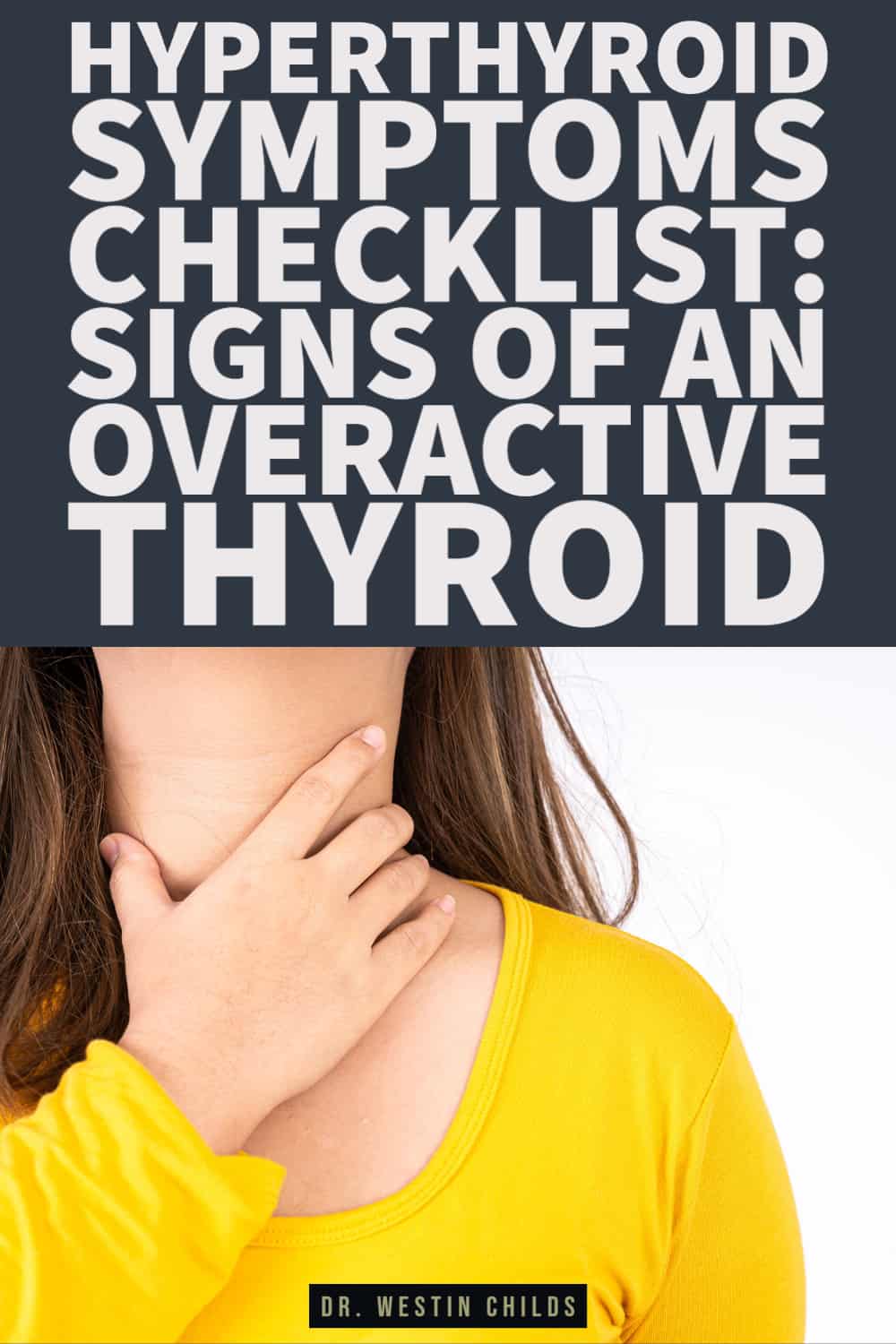
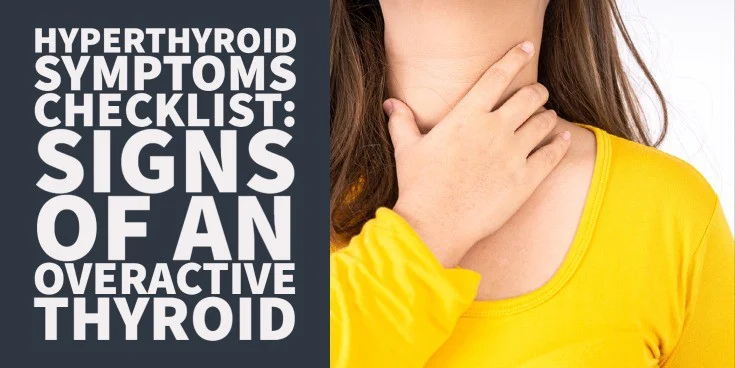

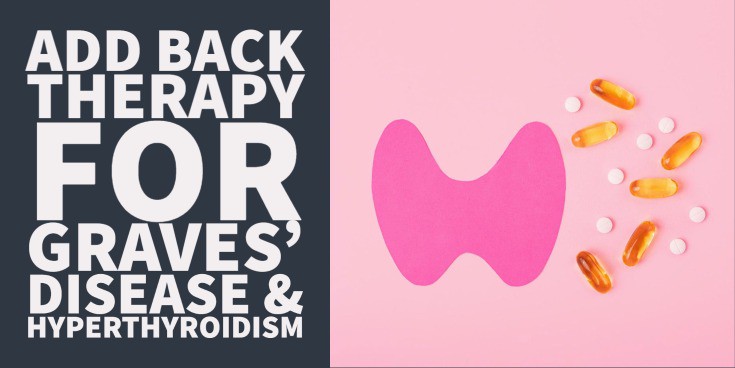
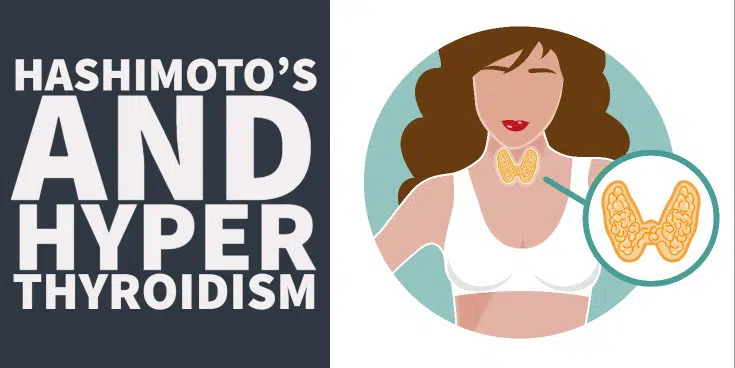
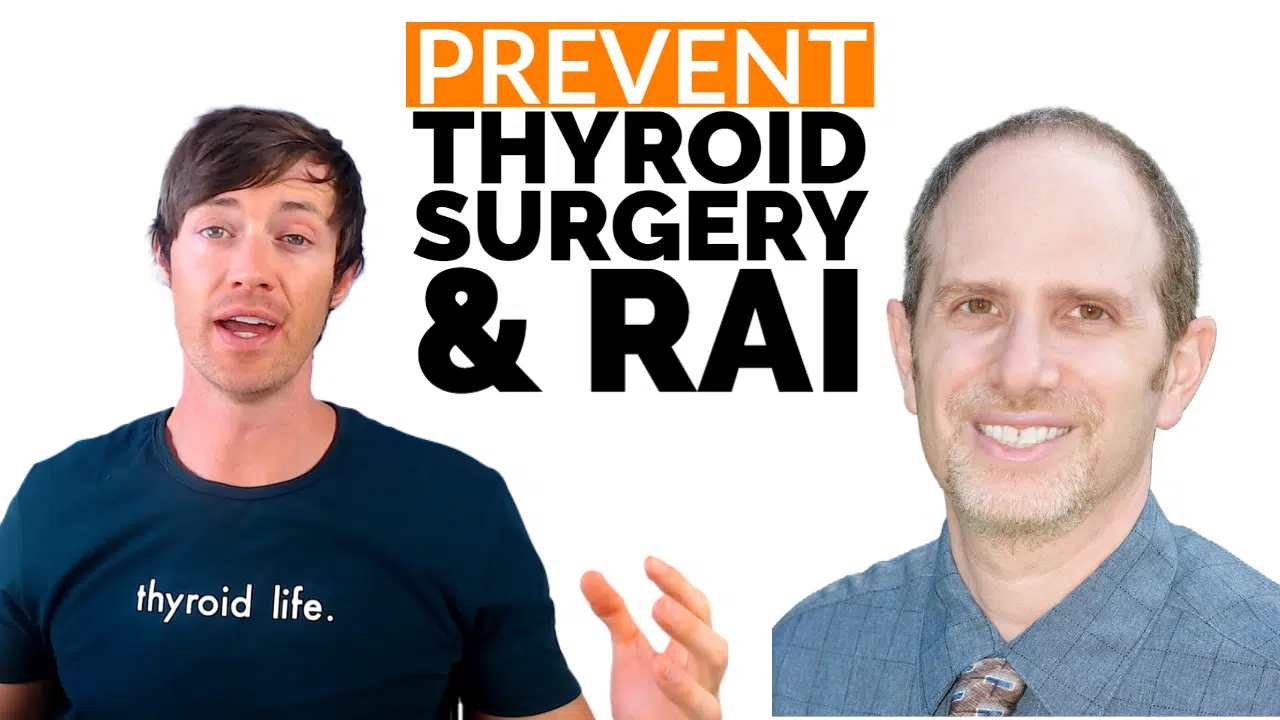
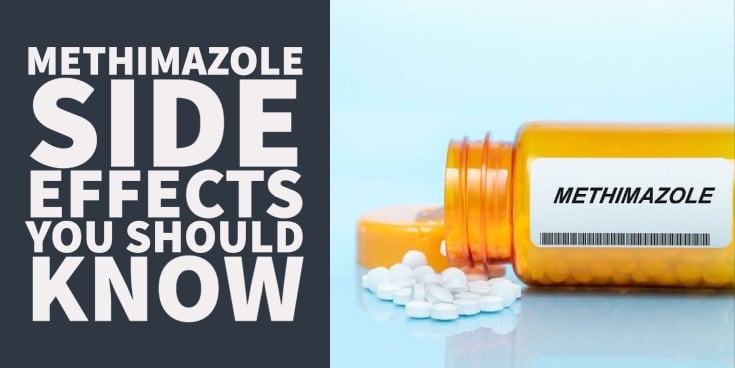
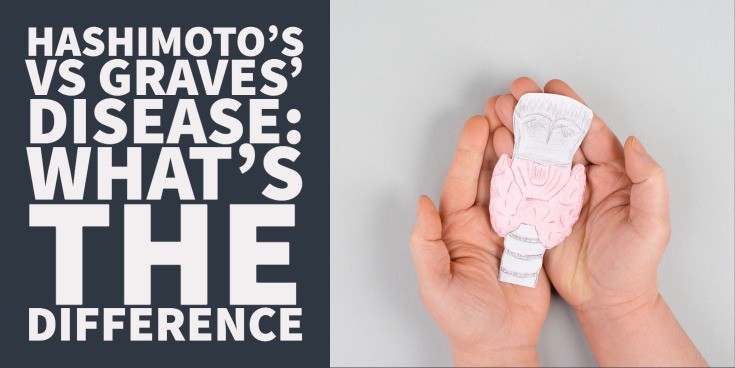
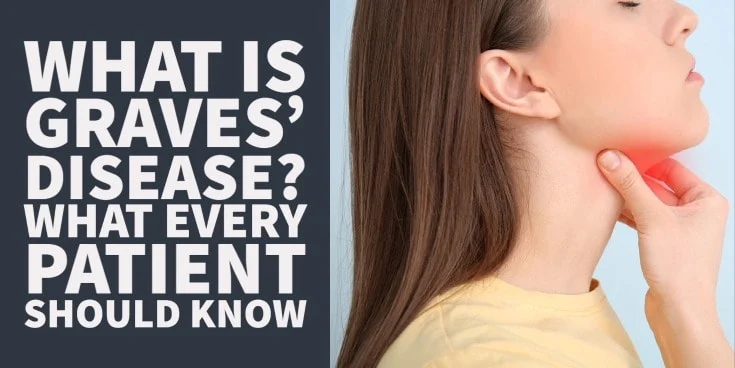

I am suffering hyperthroid but ever since in 10 years l don’t have any medication l am from philippines but l cannot afford the lab test. All of the symptoms I have pls help me I hyperthyroid on the youtube about hyperthyroid
Hi Rogelio,
I have plenty of information on hyperthyroidism in video format if that is what you are looking for! Please see this link: https://www.youtube.com/c/Restartmed/videos
I think it is interesting I have had extreme weight loss and get up from sleep and walk slowly into the kitchen for breakfast and my beats per min goes up to 130 per min and then sit and it quickly goes down just as fast I. I have a pace maker and it doesn’t kick in unless lower than 60 or higher than 160 my doctor states that I have hypothyroidism and I have all the symptoms of hyperthyroidism. I as agitated easy and tremors and I all over hair loss anxiousness. nervous muscle layer is very small and have osteoporosis…I have hormone replacement and estrogen and testosterone. I had radiation to my nasal pharyngeal area and that included the eyes and I have recently developed double vision also of hyperthyroidism…I had a TSH3 level that was high 5.85 and I have been taking biotin and cause of hair loss and iron cause of low iron that I had and iodine b vitamins and the test said that there was an infection of a virus. have continued for the last 2 years loosing weight even though I eat 6 small meals a day I am 5’4 and weigh 105 and am 63 almost 64
I have hyperthyroidism- due to
Large toxic nodule in my thyroid. I take methimazole since 15 months. im concern about its side effects.
Im considering removing one side of the thyroid where the nodule is. What are my chances that my other half of thyroid will be working properly and I will not have to take hormons?
Hi Anka,
Unfortunately, I have no way to accurately predict such a thing.
I have thyroid nodules. I recently read about a procedure called ablation of nodules. I would prefer this to years of Followups, ultrasounds, biopsies, and lab tests. Your Comments?
Hi Wanda,
You could try it if you wanted. I’m generally not a fan of permanently damaging the thyroid gland because most nodules are harmful and there are risks but it may make sense in some situations.
I have a nodule, but I am fearful of getting an uptake scan to diagnose it further, because I believe that the radiation will be harmful to the thyroid. A friend just got an uptake scan for hyperthyroid, then suddenly she turned hypothyroid, so I concluded she had damaged her thyroid. I have high reverse T3 levels, but the Dr is dismissive of reverse T3 as just being a useless test. But surely, high reverse T3 suggests that my nodule is producing hormone, and that the extra is being shunted into reverse T3 to keep my body safe. So that suggests to me, that my nodule is producing hormone, rather than being anything more sinister. How do you usually interpret high reverse T3?
Hi Linda,
That’s not necessarily true, though it may be. People can get elevated reverse T3 for a number of causes unrelated to the thyroid gland itself: https://www.restartmed.com/high-reverse-t3/
I have just been diagnosed with hyperthyroidism. TSH 8.15. Given a prescription pill. Seeking, researching other natural remedies first. Any suggestions?
Hi Terri,
Yes, please see this 1-hour long podcast on that very topic 🙂 https://www.restartmed.com/how-to-prevent-thyroid-surgery-and-radioactive-iodine-ablation-therapy-dr-osansky-and-dr-childs/
I have hyperthyroidism. My thyroid went from .45 to .005 in one week. I have nodules and am scheduled for an uptake scan next week. Explains a lot of what I am feeling.
Hi Kristen,
Indeed, it sounds like a classic case of hyperthyroidism based on that information!
Recently I experienced Nervousness, anxiety, irritability, insomnia, inability to concentrate, memory loss, no energy, easily tired.
I had blood test with the results :
very low TSH 0.9 ( 0.32-5.04 mU/L ),
free T4 12.9 ( 10.6-19.7 pmol/L)
free T3 3.9 ( 2.60-5.80pmol/L)
Do I have hyperthyroidism?
What would you suggest me to do next ?
Can I recovery by eating properly and take a good rest?
Or Need more tests and medical treatment? What tests else or medicines should I take?
Thanks!
Hi Jean,
Unfortunately, I am not able to provide medical advice or interpret your thyroid lab tests. In order to figure out what is going on you will need to get a more comprehensive set of lab tests including hormones and inflammatory markers.
Hi there, I am hyperthyroid, with a hot nodule and I am on 5mg of Methimazole, will your supplements and diet reverse this and is it reversible or is it prolonging the inevitable which is RAI. I really don’t want to get RAI and I am certainly open to more natural remedies, but I am wondering how long would taking your supplements be before I could see a change. Also would I see a change in my lab tests? And would I buy supplements for hyperthyroid or hypo as my lab results are responding to the methimazole by giving me more hypo results. Thank you.
Hi Debbie,
It’s possible that lifestyle changes combined with supplements may prevent the need for RAI/thyroidectomy. I would recommend checking out this 1 hour podcast that I did with Dr. Osansky on that very topic: https://www.restartmed.com/how-to-prevent-thyroid-surgery-and-radioactive-iodine-ablation-therapy-dr-osansky-and-dr-childs/
In terms of supplements, here is a bundle that you can look at as well: https://www.restartmed.com/product/hyperthyroid-bundle/
Your best bet is to do whatever it takes to normalize your thyroid so you can stop taking methimazole. This is more efficient then taking too much methimazole and then trying to boost your thyroid with thyroid boosting supplements.
I just started cytomel 25mg but I have notice my stomach seems larger and my breast have been more tender. Is this normal or is my dose to high.
Hi Shireen,
If it’s related (it may not be) then that may be an indication that your dose is too high. Those symptoms may also be related to the menstrual cycle or other hormones, though, so it’s hard to say for sure without more info.
I have hyperthyroid and the heat is really getting to me. I work where they just have hands. With the extreme heat we had 2 weeks ago, it knocked me down. Headache, neck ache, eyes felt bigger than sockets and felt like doing nothing but sleeping. Throat was sore, swollen, nose was dry. No, I do not have COVID. I checked. Now I need a doctor’s note stating I can’t work in this heat. ♀️
Hi Dr. Child’s,
I was just diagnosed with hyperthyroidism. I was hypo since I was 18. In April 2020, my youngest was born July 2019, I stopped taking my levothyroxine – I was on a low dose. Didn’t have any side effects and didn’t notice any difference once I stopped. In Oct. 2020 I saw a new Dr and she sent me to an endocrinologist, as I also have a prolactin issue. The endo started a new panel on me for a baseline. We rechecked it a few weeks later, and she deemed me healthy, no meds necessary. I had started taking some natural supplements and was working on weight loss. Fast forward to Oct 2022, I was starting to feel poorly and went to see a new Dr. She only ran TSH and referred me to the endocrinologist I saw before, very thankful for that – she’s great. My endocrinologist redid a full panel because she didn’t want to go just off the TSH, again thankful. She said I am hyper. We did an ultrasound and we’re still waiting on final results.
I guess my questions are: what are my natural remedies? Could my prolactin be causing some of this? I know diet and exercise would help, but would it reverse me back to normal?
Thanks!
Hi Jessi,
The short answer is, yes, your elevated prolactin may have something to do with your thyroid status but you’d need more testing to better understand the connection. In regards to natural treatments, please see this article: https://www.restartmed.com/natural-thyroid-remedies/
I have just been diagnosed with Hyperthyroidism.. I have been on methotrexate for 5 years. My treatment for an autoimmune condition, DERMATOMYOSITIS. Could this be related please.
Hi Delwyn,
They can be related in that the most common forms of thyroid disease (including hyperthyroidism) are autoimmune in origin and when you have one autoimmune disease you have a much higher chance of developing another. Dermatomyositis is felt to have an autoimmune component which is why they may be connected.
I was diagnosed with Graves disease about two months after my second Covid vaccination. My thyroglobul antibodies were above 2300, resulting in the Graves diagnosis. Shortly after the diagnosis I had shingles, so have questioned the Graves diagnosis.
My endocrinologist started me on 30mg of Methimazole for three months. After about two and a half months I felt great and requested permission to lower my dosage, she said no. By the time I was tested again my thyroid was really low. She prescribed medication to bring it up, having stopped Methimazole. Next tests I was very high, only tested T4free, T3free andTSH. For two years we played with dosages, testing was either too high or too low. My T3free was OK for several months, the other two tests showed one high and the other low that is both T4free and TSH below norms. Last test my T3free was a little above normal so she said I either should increase my dosage or do the radiation. I began losing weight again, so upped my dosage a lot, then began tapering off gradually. I had been on 10 10 15mg, which was not enough. I have made an appointment with a DO who will be my primary care physician. I have been taking your bundle for hyperthyroidism except for the Ab Rx (I’m on blood thinners) and determining dosage by my symptoms. By the way, my endocrinologist dropped me because I began thinking for myself, and I’m on waiting lists for another endocrinologist. I hope my new doctor will run another thyroglobul antibodies test, if that’s ok, does that mean I don’t really have Graves disease?
Hi Dr. Child’s! My son (19) was diagnosed with Hashimoto when he was twelve. He’s is not on hormone therapy. A month ago he felt sick, had fever, but just for one day, tomorrow he went back to college. We did blood test and his CRP was 20 (range <5) and his TSH was 0.01., fT4 28.86 (range 11.50-22.70) fT3 8,11 (range 2.76 -6.45), Tg-At 373 (<40), TPO-at 377 (<35)and we did another test couple days ago, CRP was 6,9, TSH was the same, fT3 was in range, fT4 still high anti-Tg 667.22 and anti-TPO 435.02. They don’t do Graves antibodies here in Croatia. I’m so worried! Is he hyper now? Can Hashimoto turn to Grave? Or this can happened because of virus/flu?
Hi Marica,
There’s a lot of overlap between Hashimoto’s and Graves’ and both conditions can coexist in the same person. You can learn more about that here: https://www.restartmed.com/hashimotos-vs-graves/